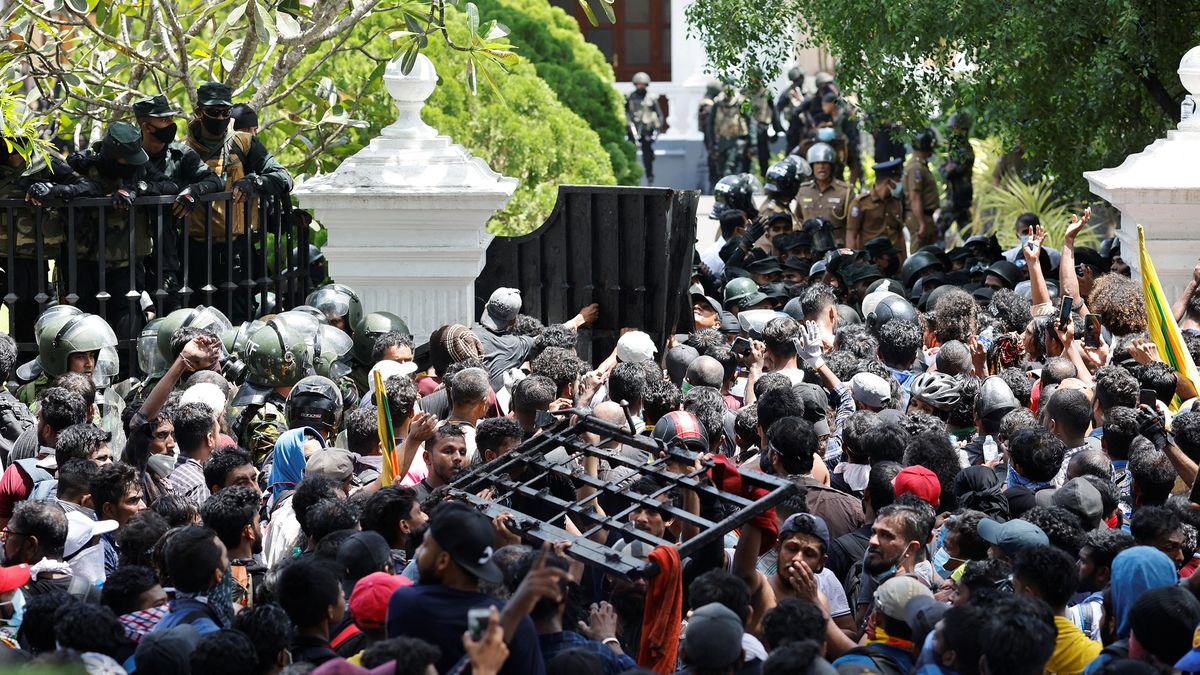The protesters demand that the prime minister Ranil Wickremesinghe resign at the same time as Rajapaksa, who promised to do so this Wednesday, cornered by the worst economic crisis and politics of the history of this island south of India.
A group of women and men broke through the barrier imposed by the military and entered the prime minister’s office waving Sri Lankan flags, witnesses told AFP, despite the fact that the policeman and the army he tried to stop them by firing tear gas and water cannons at them.
Anti-government protesters also stormed the headquarters of the main public television channel from Sri Lanka and appeared briefly on air broadcasts, according to images from that chain.
In the streets since Saturday
On Saturday, a crowd invaded the presidential palace, precipitating the flight of President Rajapaksa, who on Wednesday morning fled by plane to neighboring Maldives.
Prime Minister Wickremesinghe, appointed interim president by the Parliament, asked the army and the police “to do whatever is necessary to restore order.” The protesters “want to prevent me from fulfilling my responsibilities. We cannot allow the fascists take control,” he said.
Earlier, a spokesman for his office told AFP that a state of emergency was being declared to deal with the situation in the country.
On their side, the police announced a curfew indefinitely in the western province, where Colombo is, to contain the protests.
The Constitution of Sri Lanka foresees, in the event of the resignation of the president, that the prime minister will assume that position on an interim basis until the election by Parliament of a deputy who will exercise power until the end of the current mandate, that is, November 2024.
The economic crisis in Sri Lanka
Rajapaksa is accused of mismanaging the economy, leading the country into chaos and a deep crisis due to the lack of foreign exchangewhich makes it impossible to finance imports of essential products for the population of 22 million inhabitants.
Sri Lanka declared a $51 billion debt moratorium in April and is in negotiations with the International Monetary Fund (IMF) to receive a loan.
In addition, the country almost exhausted its fuel reserves and the government ordered the closure of non-essential administrations and schools to reduce displacement.
Source: Ambito
David William is a talented author who has made a name for himself in the world of writing. He is a professional author who writes on a wide range of topics, from general interest to opinion news. David is currently working as a writer at 24 hours worlds where he brings his unique perspective and in-depth research to his articles, making them both informative and engaging.




